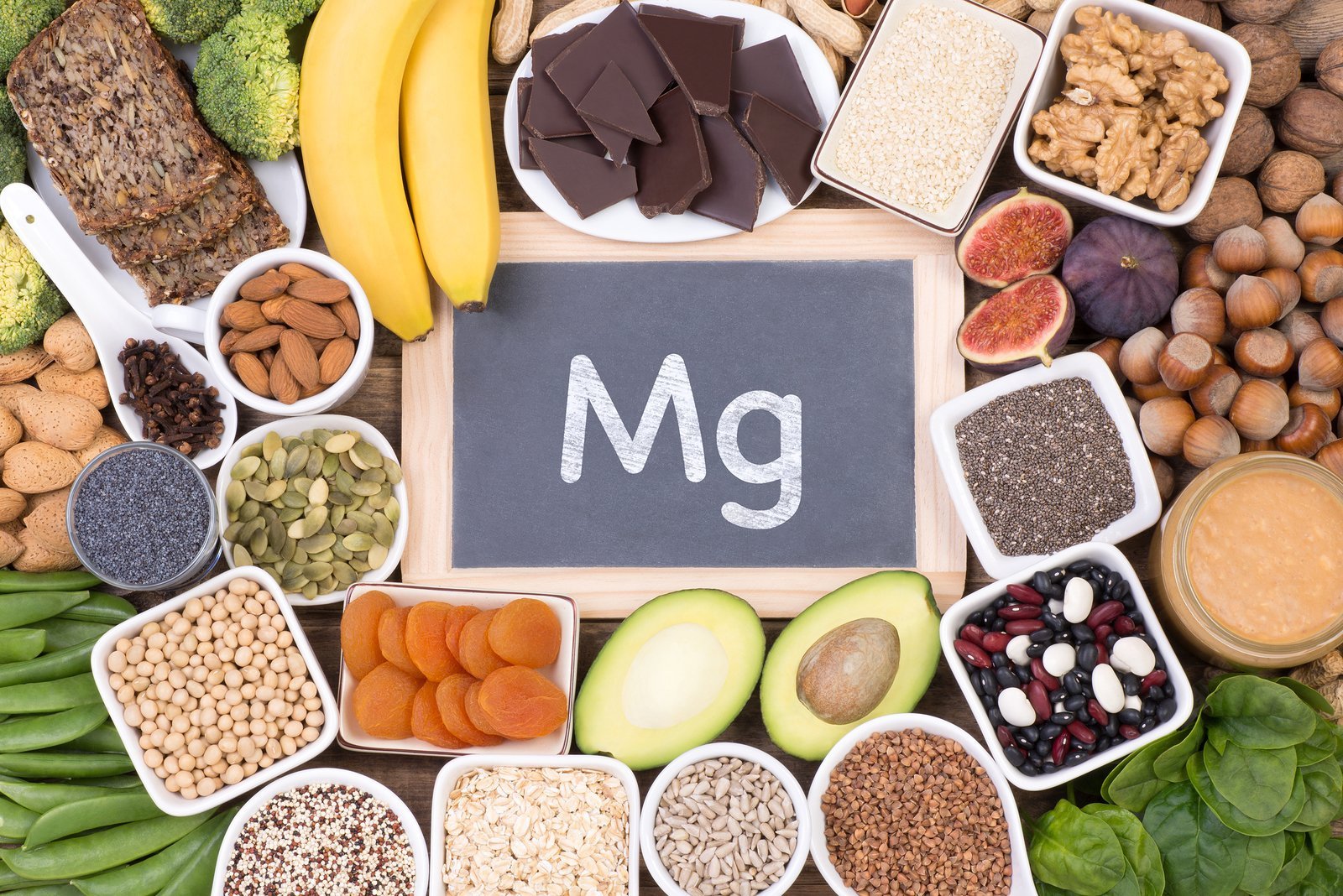What roles does magnesium play in the body?
Often referred to as the ‘anti-stress mineral’, magnesium is involved in hundreds of processes in your body, including big ones like energy production and cardiovascular function.
Brain Function
Magnesium plays an important role in relaying messages from your body to your brain by working with receptors that contribute to brain development, memory, and learning. Magnesium protects the receptors from being overstimulated, which can cause damage to the nerve cells over time. In addition to the regulation of neurotransmitters, magnesium helps to a reduce inflammation of the brain tissues which can be a contributing factor in many neurodegenerative diseases.
Muscle Function
Magnesium and calcium naturally compete, which generates muscle contractions. When calcium enters a cell it stimulates the contraction of muscle fibres. In order for the muscle fibres to relax, magnesium must enter the cell. This flow of minerals is imperative for smooth and coordinated muscle movements. Low magnesium levels can result in overstimulated muscles leading to spasms and cramps. In the heart specifically, this can cause an irregular or rapid heartbeat and other heart problems.
Some other ways magnesium has been used:
- Magnesium can increase calcium solubility in the urine, helping to prevent kidney stones.
- Magnesium (along with vitamin B6 and calcium) has been shown to reduce PMS symptoms including menstrual cramps, fatigue, and water retention.
- Fatigue from anxiety, insomnia, nervousness, depression, and muscle cramps can be improved with increased magnesium intake.
- Alcohol withdrawl and hangover symptoms have been attributed in part to low magnesium levels, so supplementing could result in a reduction of symptoms in this area.
- Specifically, magnesium malate could be helpful in treating chronic fatigue syndrome and fibromyalgia pains.
- When taken orally, magnesium sulfate (epsom salts) or magnesium hydroxide (milk of magnesia) will attract water into the colon working as a laxative.
- A bath in epsom salts (magnesium sulphate) can have a relaxing and detoxifying effect and can be especially helpful for treating injuries and sore muscles.
- A magnesium oil spray can be applied areas of sore muscles or to the bottoms of feet, abdomen, or back to promote relaxation.
What happens if you are deficient?
Deficiency can be quite common in populations that consume a large amount of processed foods, drink soft water, consume a high amount of alcohol, or eat foods that are grown in nutrient-depleted soil or where synthetic fertilizers are used. Some of the early signs of deficiency can be fatigue, irritability, insomnia, muscle tremors or twitching, confusion, poor memory, rapid heartbeat or other cardiac changes, numbness and tingling, and increased blood pressure.
What does it pair with?
For optimal functioning of bodily systems magnesium must be balanced with calcium, phosphorus, potassium, and sodium chloride. These other minerals are fortified in many of our foods like dairy products, flour, juices, pop, and other processed items, but magnesium is not. This can lead to a deficiency if magnesium rich foods or supplements are not consumed.
Magnesium and calcium have an important relationship when it comes to muscle function and it is strongly recommended to keep them balanced. If you are supplementing calcium, magnesium should also be increased to maintain the 2:1 ratio.
Sources of magnesium
Magnesium can been found in plant based foods like pumpkin seeds, spinach, swiss chard, black beans, flaxseeds, broccoli, beet greens, almonds, cashews, dark chocolate, and avocado. Seafood (specifically molluscs and crustaceans), pork and poultry also contain high levels of magnesium.
The magnesium level of foods can vary drastically depending on the mineral level in the soil, processing or refining of foods and cooking. This underscores the importance of choosing ingredients from quality sources.
An important aspect to consider when looking at magnesium absorption is the bioavailability, or how easy it is for your body to absorb the nutrient. This mineral can be quite difficult for the body to take up and use depending on the source. An example of this is that spinach has over 25% more magnesium than kale, but the magnesium in kale is more bioavailale, so you will actually get more from eating kale than spinach.
There are also a variety of supplemental forms of magnesium. These supplements are more bioavailable than many of the food sources.
Notes about consumption
Here are a few things to keep in mind when you are thinking about your magnesium consumption…
- The consumption of alcohol, caffiene and sugar can encourage magnesium elimination.
- Magnesium requires an acidic environment in the stomach for optimal absorption. Taking supplements shoud be done between meals or at bedtime. Meals high in protein, fats, and phosphorus can make absorption more difficult.
- Magnesium, like calcium, in some leafy greens and grains can be bound to oxalic acid or phytic acid forming insoluble salts. These salts are then eliminated by the body instead of being absorbed.
- Boiling foods can extract a large portion of the magnesium from them. Consider saving the water to be added to another dish or use it to water your garden.
Check out this super simple way to make your own Magnesium Oil Spray!



One thought on “Magnesium”
Comments are closed.